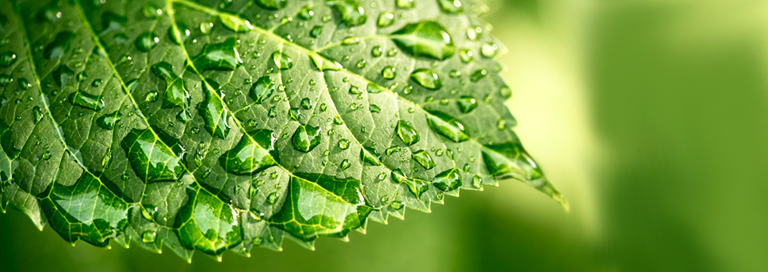University of Melbourne researchers recently made an accidental discovery that could help you lower your blood pressure.
But I can already tell it’s going to be misused.
Researchers conducted animal studies on how zinc affects brain function when they stumbled on an unrelated finding: Boosting zinc levels in rats sharply reduced their blood pressure.
To their credit, the researchers quickly shifted gears and began studying zinc’s ability to help blood vessels relax and expand, lowering blood pressure.
But here’s the rub: The Melbourne researchers want to develop a new drug based on their findings. Sadly, I’m not surprised.
However, I’ve been using zinc and other essential minerals – calcium, potassium, magnesium – for over a decade in my clinic.
Today, I’ll show you how to use this latest information to protect your health — without becoming dependent on blood-pressure meds that threaten to burden you with lifelong side effects.
Natural “Health Hacks” Maintain
Healthy Blood Pressure
Over 100 million U.S. adults have hypertension/high blood pressure. To avoid being one of them, be sure you’re getting plenty of 4 essential minerals.
Here are the best food sources for them, along with “health hacks” to help keep your blood pressure under control:
Calcium – Eat lots of wild-caught fish, sardines, anchovies, and eggs from free-range chickens. Suggested health hack: Avoid excess salt. It elevates blood pressure and accelerates calcium excretion via the kidneys – a double whammy you’ll want to avoid.1
Magnesium – Consume plenty of nuts and seeds, seafood, and leafy green vegetables. Suggested health hack: Try unsweetened cacao. It’s one of the highest magnesium plant sources…up to 27 mg in a single teaspoon. And cacao’s flavonoids lower blood pressure.2 You can buy organic cacao powder online.
Potassium – Look for grass-fed beef and milk from grass-fed cows, and fruits like
kiwi, apricots, pomegranate, and avocados. Suggested health hack: Enjoy your coffee (in moderation). Just one cup of java has 116 mg of potassium. But be careful… coffee consumption can also trigger a small increase in blood pressure.3Zinc – You’ll find zinc in meats, fish, and poultry. But, I also recommend you supplement with up to 30 mg a day of zinc picolinate, the form that’s better absorbed. Suggested health hack: Take your supplement either one hour before or two hours after your meal… that’s when it provides the most benefit.
Use ‘Flower Power’ to Fight Hypertension
I also highly recommend two other natural ways to fight hypertension… both involve flowering plants.
Sesame oil – Sesame oil comes from the seed pods of sesamum indicum, a handsome flowering plant that grows about 3 feet tall. Thought to be humanity’s oldest form of seed oil, sesame is rich in the powerful antioxidants sesamol and sesamin.
In one study, 50 patients on blood pressure medication who still had hypertension used sesame oil exclusively for 45 days. In every case, their blood pressure dropped to a normal range. And as soon as they stopped taking the sesame oil… they became hypertensive again almost immediately.4 It’s strong evidence that a tablespoon of sesame oil each day helps keep your blood pressure under control.
Globe amaranth – One of the highlights of my time spent investigating natural cures in Bali was learning about globe amaranth554554, the stunning red blossom you see everywhere there. The Balinese have used this beautiful flower to lower blood pressure for centuries. It’s so effective I devoted an entire chapter to it in my book The Healing Herbs of Paradise. You can grow it in your garden and it makes a hearty tea. Just drop a dried blossom or two in a cup, pour hot water, and let it steep for 4-5 minutes. Enjoy!
To Your Good Health,
![]()
Al Sears, MD, CNS
References:
1 Teucher, Birgit, et al. “Sodium and Bone Health: Impact of Moderately High and Low Salt Intakes on Calcium Metabolism in Postmenopausal Women.” Journal of Bone and Mineral Research, vol. 23, no. 9, 14 Apr. 2008, pp. 1477–1485, onlinelibrary.wiley.com/doi/10.1359/jbmr.080408/references, 10.1359/jbmr.080408.
2 Ludovici, Valeria, et al. “Cocoa, Blood Pressure, and Vascular Function.” Frontiers in Nutrition, vol. 4, 2 Aug. 2017, 10.3389/fnut.2017.00036.
3 Klag, Michael A., et al. “Coffee Intake and Risk of Hypertension the Johns Hopkins Precursors Study,” 2 Mar. 2002. Jamanetwork.com website accessed 13 Aug. 2021.
4 Sankar, D., et al. “Effect of Sesame Oil on Diuretics or ß-Blockers in the Modulation of Blood Pressure, Anthropometry, Lipid Profile, and Redox Status.” The Yale Journal of Biology and Medicine, vol. 79, no. 1, 1 Mar. 2006, pp. 19–26, NIH.gov website.. Accessed 13 Aug. 2021.

